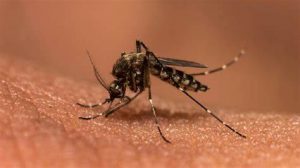Malaria: The Silent Killer

Simple Lifestyle Changes That Can Improve Heart Health
April 16, 2025
Inside the ER: What Really Happens in an Emergency Room
May 5, 2025Malaria: The Silent Killer

Malaria is a mosquito-borne infectious disease caused by the Plasmodium parasite. It is prevalent in tropical and subtropical regions, particularly in Africa, South America, and Asia. Let’s dive into the causes, symptoms, and prevention of malaria.
Causes

Malaria is primarily transmitted through the bite of infected female Anopheles mosquitoes. When an infected mosquito bites a person, it injects the malaria parasites into their bloodstream. Less commonly, malaria can also be transmitted through blood transfusions, organ transplantation, or from mother to unborn child during pregnancy.
Symptoms:
The symptoms of malaria usually appear within 10-15 days after the infected mosquito bite. However, in some cases, symptoms may take several months to develop. Common symptoms include high fever, chills, headache, sweating, fatigue, body aches, nausea, and vomiting. If left untreated, malaria can progress to severe illness, causing organ failure, anaemia, and even death.
Prevention:

Preventing malaria involves taking measures to avoid mosquito bites and reducing mosquito breeding grounds. Here are some effective prevention strategies:
- Wear protective clothing: Cover your arms and legs with long-sleeved shirts, long pants, and socks, especially during dusk and dawn when mosquitoes are most active.
- Sleep under mosquito nets: Use bed nets treated with insecticides to create a protective barrier while sleeping, particularly in areas here malaria is prevalent.
- Eliminate mosquito breeding sites: Regularly empty, clean, or cover any containers or areas with stagnant water where mosquitoes can breed, such as flowerpots, buckets, or discarded tires.
- Take antimalarial medication: If you are traveling to a malaria-endemic region, consult with a healthcare professional for appropriate antimalarial medications to prevent infection.
Remember, early diagnosis and prompt treatment are crucial in managing malaria effectively. If you experience symptoms or have been in a malaria-endemic area, see medical attention promptly.
Stay informed, take preventive measures, and protect yourself from malaria.
If you have any further questions, concerns, or you have any of the symptoms mentioned above, feel free to visit Cedarcare Clinic. Stay proactive in taking care of your health.

